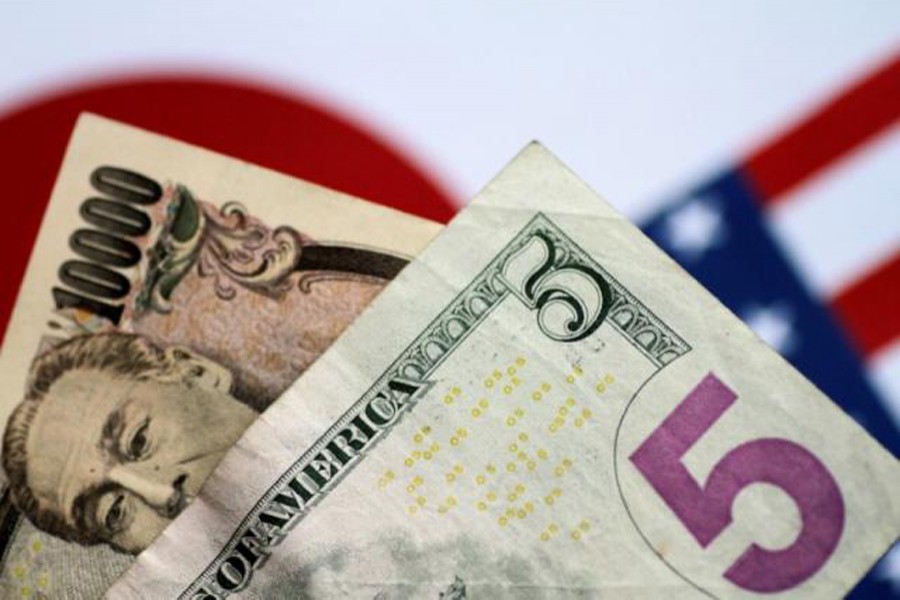The dollar fell to four-month lows against the yen on Tuesday as investors cut exposure to riskier assets as Washington struggled with a partial government shutdown and open confrontation between the White House and the central bank.
The dollar fell 0.27 per cent to 110.12 yen in early Tuesday trade — its lowest level since late August and extending a seven-day losing streak. The yen also hit a 16-month high against the British pound, trading at 139.90 yen.
US stocks plunged more than two per cent while oil prices sank more than six per cent in a holiday-shortened Monday trade, as developments in Washington added to investors’ concern about a slowdown in the global economy next year.
“People are saying this is a black Christmas,” said a veteran currency trader at a major Japanese bank.
Wall Street’s volatility index, which measures implied volatility of stocks and is often seen as investors’ fear gauge, jumped to 36.10, the highest since Feb. 6, when it briefly shot up to as high as 50.30.
US President Donald Trump blasted the Federal Reserve on Monday, describing it as the “only problem” for the US economy, only days after reports surfaced that Trump had discussed firing Federal Reserve Chairman Jerome Powell.
“If talk of firing Powell becomes more realistic, that would undermine the Fed’s independence as a central bank and ultimately confidence in the dollar,” said Ayako Sera, market economist at Sumitomo Mitsui Trust Bank
As a sell-off in equities escalated, US Treasury Secretary Steven Mnuchin hosted a call with the president’s Working Group on Financial Markets, a body known colloquially as the “Plunge Protection team”.
But holding such a meeting, which is normally only convened during times of heavy market volatility, did little to soothe the market. Some said the move may have backfired by hurting investor sentiment.
Trump also sparred with top Democrats in Congress over the partial shutdown of the US government on Monday, with no sign of tangible efforts to reopen agencies.
Washington’s latest problems come on the heel of a major sell-off in global shares since early October on worries about Sino-US tensions, higher US interest rates and a waning boost from Trump’s tax cuts to the US economy.
With many markets closed for Christmas, other currencies were hardly traded on Tuesday. The euro was little changed at $1.1410, having gained 0.33 per cent on Monday.
Safe-haven assets, such as the Swiss franc and gold, were supported, though they have not been traded on Tuesday.
The Swiss franc rose 0.9 per cent on Monday, its biggest daily gain in 11 months to 0.9858 franc per dollar, edging near 2 1/2-month high of 0.9841 touched last Thursday.
The franc gained 0.4 per cent against the euro to 1.1260 to euro.
Gold rose to a six-month high of $1,269.30 per ounce on Monday.
Commodity currencies faced fresh pressure as oil prices tumbled more than 6 per cent on Monday.
The Canadian dollar traded at C$1.3600 per US dollar, having hit a 19-month low of C$1.3614 on Monday.
The Australian dollar fetched $0.7053, near this year’s low of $0.7021 set in late October.


